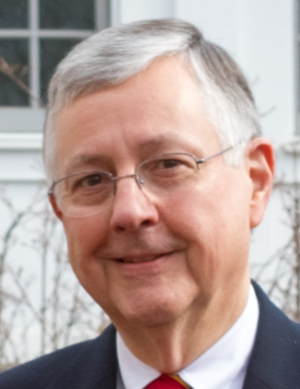By Pressley Peters
 The Rev. Joe Paul Case ’70 B.D. discovered Yale through his world religions professor at Oklahoma City University. A Methodist, Case was in the process of applying to the divinity schools at Duke and SMU when his professor intervened, encouraging Case to pursue Harvard, Union, and Yale instead. Yale responded first, and he accepted sight unseen.
The Rev. Joe Paul Case ’70 B.D. discovered Yale through his world religions professor at Oklahoma City University. A Methodist, Case was in the process of applying to the divinity schools at Duke and SMU when his professor intervened, encouraging Case to pursue Harvard, Union, and Yale instead. Yale responded first, and he accepted sight unseen.
Through more than four decades in financial aid at Amherst College, Oklahoma City University, and the College Board, with many community leadership roles along the way, Case’s career led him through uplifting, challenging, and occasionally dangerous assignments. He was once imprisoned while serving on a penal reform task force in Oklahoma. In 1970, he worked all night aiding students who were teargassed during the historic May Day demonstrations held in support of the Black Panthers. Whether he was engaged in volunteering or activism, or working to help students earn a college degree, all of it was ministry.
Among several vocation-related awards for his efforts, in 2012 Case received the Edward M. Kennedy Public Service Award of the Massachusetts Association of Student Financial Aid Administrators “for distinguished service as a champion for the needs and rights of underserved and disadvantaged groups.” Additionally, he has been a long-time leader in the Boy Scouts of America and has traveled to all 50 states on work-related trips or family vacations. He and his wife live in Massachusetts.
How did your time at YDS impact your life and career?
My education happened as much outside the classroom as in it. Through experimental field work at YDS, I realized that a secular job could be a ministry. My coursework in social ethics led to my commitment to distributive justice, while my coursework in counseling was fundamental to my 42 years working with students in a higher education setting. My involvement in the New Haven community, including First United Methodist Church (now First and Summerfield UMC) and other downtown churches, allowed me to be an active volunteer in local churches and in state and national higher education organizations once I was employed.
At Amherst, the financial aid staff knew I was a minister and expected my actions to match a ministerial intent. One of the best compliments I received in this regard was from an Amherst professor who said he witnessed me living into one of my favorite Bible verses, Micah 6:8, “He has told you, O mortal, what is good, and what does the Lord require of you but to do justice, and to love kindness, and to walk humbly with your God?”
You have dedicated your life and career to higher education and student financial aid. What issues in education today concern you and what do you see that is heartening?
Of great concern is opposition to diversity, equity, and inclusion, as well as challenges to the independence of colleges and universities.
I am heartened by Dean Greg Sterling’s critique of the undermining of USAID and by Harvard University’s resistance to intended dictates about the institution’s policies and operations. I am also heartened by YDS’s commitment to the environment via the Living Village, the prospective expansion of opportunities for both international students and study abroad, as well as the cooperative degree programs with other professional schools at Yale.
How do you imagine your generosity might impact YDS students, the Divinity School, and our world?
I hope that scholarship resources will ease the financial aid burden of students—especially those who are married or who have children—to cover the costs of living without reliance on loans.
My father was a blue-collar worker, and my mother was a department store clerk. Scholarship aid and employment income allowed me to graduate from college without debt. Although I had scholarship assistance from YDS and income from work-study, I took student loans to supplement my resources. If I had been in a parish appointment after graduation, my student debt would have been about two-thirds of my annual salary.
How is giving joyful and/or personally significant to you?
My employers offered transferable retirement plans, and I can draw on IRA funds through qualified charitable distributions so that the dollars pass directly to a non-profit organization without tax. I take great pleasure in giving to YDS and have committed additional funds that will pass to YDS upon my death.